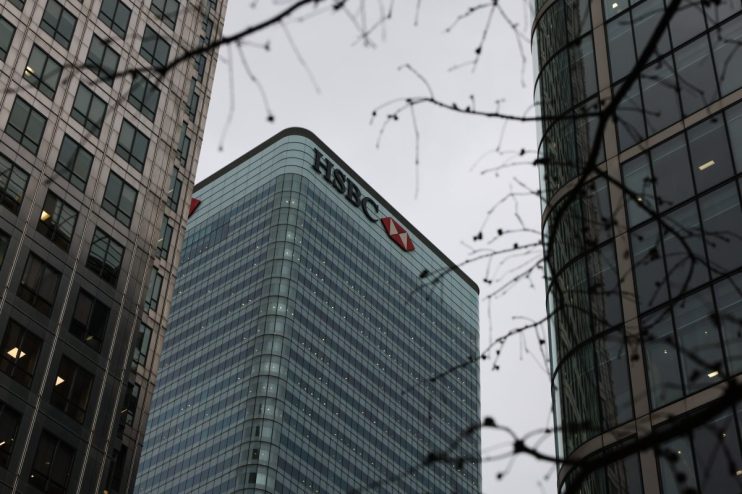HSBC unveils record annual profits and fresh buyback but hurt by $3bn writedown on China bank holding

HSBC has posted record annual profits on the back of higher interest rates and announced a new $2bn (£1.6bn) share buyback, while its earnings in the final quarter of 2023 were hit by $3bn (£2.4bn) in charges from its stake in a Chinese bank.
The Big Four lender, which is headquartered in London but makes most of its profits in Asia, reported a pretax profit of $30.3bn (£24.0bn) for last year, soaring 78 per cent from 2022 but undershooting analysts’ estimates of $34.1bn (£27bn).
As well as the buyback it said it would consider a special dividend of $0.21 (16.6p) per share in the first half of 2024 upon the sale of its Canadian business to RBC, which received government approval late last year.
The bank announced $7bn (£5.4bn) in buybacks last year and was the UK’s highest dividend-payer, dishing out £8.4bn as its profits soared from interest rate hikes around the world – a tailwind that is dying down as key central banks are likely to keep holding rates before making multiple cuts later this year.
HSBC’s fourth-quarter earnings were dragged down by $3bn (£2.4bn) in unexpected charges on its holdings in China’s Bank of Communications (BoCom) and $2bn (£1.6bn) from the sale of its French retail banking business.
Pretax profit came in at $1bn (£0.8bn) in the final three months of 2023, slumping from $5bn (£4bn) during the same period in 2022.
HSBC said the China writedown came after a review of the outlook for BoCom’s cash flows, loan growth and interest margins. It took a 19.9 per cent stake in BoCom for $1.75bn (£1.4bn) in 2004.
“BoCom remains a strong partner in China, and we remain focused on maximising the mutual value of our partnership,” HSBC said. “Our positive views on the medium and long-term structural growth opportunities in mainland China are unchanged.”
The news sent HSBC’s shares down 3.8 per cent in Hong Kong and 6.8 per cent in London.
China’s post-Covid economic stagnation, fuelled by a commercial real estate crisis, has sparked concern among investors in Asia-focused banks like HSBC and Standard Chartered.
Despite repeatedly insisting that the worst of the crisis is over, HSBC set aside $200m last quarter to cover potential losses.
“China’s recovery after reopening was bumpier than expected, but its economy grew in line with its annual target of around five per cent in 2023,” said HSBC chair Mark Tucker on Wednesday.
The bank is in the process of investing more in Asia’s fast-growing insurance and wealth management sectors while exiting less profitable businesses in its other geographies.
HSBC also announced an interim dividend of $0.31 per share for the fourth quarter, bringing the total for 2023 to $0.61 per share.
The bank posted a 14.6 per cent return on tangible equity (RoTE) in 2023, undershooting estimates of 17 per cent. HSBC maintained its aim for a RoTE in the mid-teens for this year.
Its costs grew by a more-than-expected six per cent last year due to high levies in the UK and US, while it expected costs to rise another five per cent this year, driven by inflation and increased investment.
HSBC’s bonus pool has risen to $3.8bn from $3.4bn year-on-year, while Quinn’s total pay doubled to $10.6m in 2023.
Analysts at Jefferies said in a note: “What matters for the shares today are the commitment to a mid-teens RoTE for 2024 (at worst, in-line consensus expectations) and a $2bn buyback reload. These price-sensitive points come amidst a messy Q4 print and some unclear guidance detail for 2024.
“Working back from the mid-teens guidance, we see a baseline picture of unchanged consensus earnings. In terms of Q4 results themselves, we estimate ‘clean’ [pretax profit] was five per cent ahead.”
Updated with London shares and analyst commentary